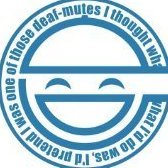-
Recently Browsing 0 members
- No registered users viewing this page.
Announcements
-
Topics
-
Latest posts...
-
14
Completely disheartened Canadian seeking advice to bring Thai gf or wife to Canada
this one applies to me i am all ears and you can pm me if you know how to circumvent the 20 yr thingy... but dont you still have to pay tax? lemme know -
-
37
Striking Back: The West's Need for a Stronger Response to Russia's Hybrid War
I'm guessing you're not aware that Putin has made clear he is only annexing a part of the Ukraine, not the whole country. And that there is zero evidence that he's intending to annex Poland, or any other state. Latvia, Estonia and Moldova are not independent states? What evidence is there Putin will annex them? Zero. Same with Georgia and Ukraine. Those were only replies to US threats to put missiles there threatening Russia's existence. Like Ukraine, the fault of our Western politicians' incompetence. -
1,362
President Kamala Harris
Trump is about 5 minutes away from declaring bankruptcy - again. After he loses the election, you probably won't be interested in watching Trump go down the drain. -
57
MOPH’s plan to rub out illicit activities in Thai massage shops
Bar girls will make a killing, LOL . But to be honest, we have heard this song and dance for a long time. When they start to close the soapies, I think I will start to believe, LOL. Had to laugh went to Patpong yesterday and they are actually advertising with signage about ping pong shows. -
415
The Investing Year Ahead
How can you tell when the market has bottomed? Every financial institution is desperately looking for you. -
1,362
President Kamala Harris
Trump was compensating a lawyer who paid off Stormy Daniels, and called it a legal expense. Basic fraud. -
1,362
President Kamala Harris
Yeah, living in Pattaya bragging about the bargirls you pay to bang, terrified that Project 2025 is going to cut into you Social Security. -
1,362
President Kamala Harris
ER. No. Do the research and you'll find out it's super dodgy.- 1
-

-
0
Surface post rate from Thailand to North Wales.
I'm trying to discover the surface post charge for 8kg (photo albums) from Phimai, Korat, 30110; to UK, Wales, LL28 5HU. Although I have some info on this, it may be unreliable; ha ha. Also, considering the usual, and specific haxards involved with any such attempt, do forum members think it worthwhile to even attempt this operation. My contact in korat seems honest and reliable, but the staff in Phimai post office have given indications of mis-information and over quotes. No massive biggie, information is power, the farang must always be made to pay the "big money" ha ha. -
182
Trump to scared for debate with Harris
She is super thick. Dumbest ex lawyer I've seen. -
182
Trump to scared for debate with Harris
She is way smarter than Trump. Just not a street fighter with no rules like him. -
1,362
-
1,362
President Kamala Harris
ER - no. He had to show that he the funds to secure the loan. -
37
Striking Back: The West's Need for a Stronger Response to Russia's Hybrid War
It's Putin's long time stated objective to return Russia to It's former USSR glory. Just ask Moldova, Georgia, Latvia, Estonia, Ukraine, etc. I'm guessing you're not aware of the land grabs over the past few decades?
-
.png.3b3332cc2256ad0edbc2fe9404feeef0.png)






.thumb.jpg.07d3893e233f9af17b17b40cc153f571.jpg)
Recommended Posts
Create an account or sign in to comment
You need to be a member in order to leave a comment
Create an account
Sign up for a new account in our community. It's easy!
Register a new accountSign in
Already have an account? Sign in here.
Sign In Now